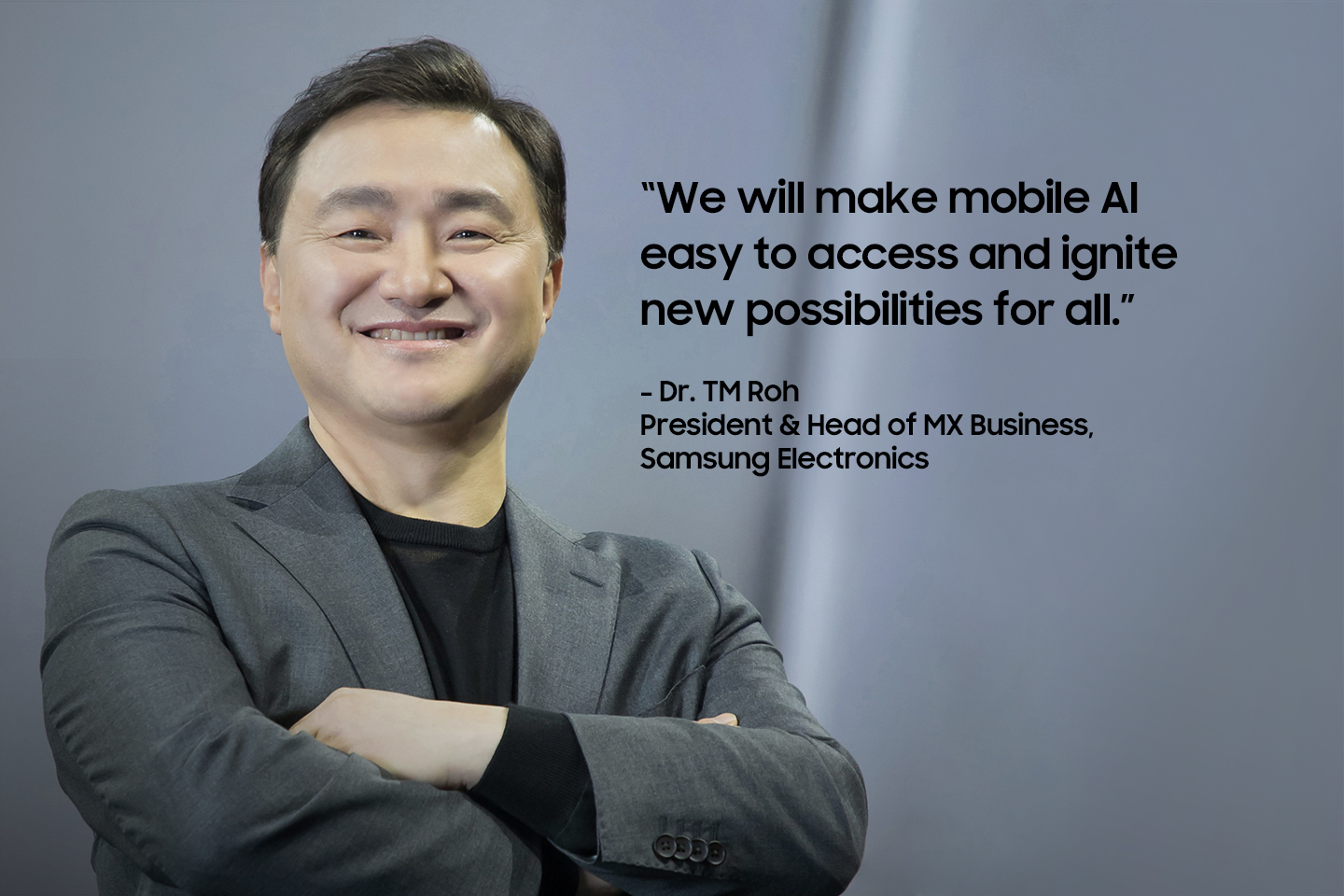Bengaluru, India – February 21, 2024– Developing the Galaxy S24 series has been the most rewarding period of my career. As an engineer, I have witnessed many examples of incredible innovations, but AI is the most transformative technology of the century. Few engineers get the chance to be involved in something with such seismic potential. It brings great change, not only for Samsung and the mobile industry, but for all humankind.
When integrated into phones, AI, is to put it simply, a revolution. This is a new era for mobile experiences and Samsung Galaxy has a leading role to play in it. Mobile devices will become the primary access point for AI, and Samsung Galaxy – with our broad and comprehensive product portfolio, heritage of innovation, and philosophy of open collaboration – is in a great position to accelerate its global expansion. We will make mobile AI easy to access and ignite new possibilities for all.

Opening Up New Possibilities
As we pioneer groundbreaking experiences in mobile AI, we’ve thought a lot about how this new and exciting technology can enhance our lives and inspire society’s next steps. Applied with care and consideration, Galaxy AI helps people communicate beyond borders, complete everyday tasks easily, and so much more.
Since the launch of Galaxy S24 series, we’ve had great feedback about how people actually use Galaxy AI features in their daily lives. One of the most welcomed AI features is Circle to Search with Google, an incredible new tool for intuitive discovery. Our communication tools for removing language barriers, such as Live Translate, Chat Assist and Interpreter, have captured the imagination of many. People also love Photo Assist, our tools for creativity powered by our ProVisual Engine.
Again, we’re only getting started. While developing the Galaxy S24 series, we had many ideas and concepts that we wanted to bring to life. Galaxy users will be able to enjoy more Galaxy AI features that build on these ideas and concepts over time as Samsung continuously enhances and grows the mobile AI experiences.
Moreover, we are already planning next steps for Galaxy AI beyond smartphones – optimizing it for various categories of devices, across various services. In the near future, the select Galaxy wearables will use AI to enhance digital health and unlock a whole new era of expanded intelligent health experiences. Samsung will keep enriching and expanding Galaxy AI experiences across categories through collaborations with more industry-leading AI partners.
The Next Big Thing is YOU
Over the past year, we frequently asked ourselves what users want or need and what they could achieve with a little assistance. These questions inspired the Galaxy S24 series, our first AI phone that invites users to imagine how their lives could change thanks to AI. It is the phone of the future, shaping the standard of mobile AI and defining this emerging category of AI phones.
Of course, there are challenges and responsibilities to consider. AI models in training are still susceptible to hallucinations, and the debate on intellectual property rights continues. It is crucial that companies openly collaborate to carefully define AI experiences, so users can confidently and reliably enjoy their new abilities.
It’s also important to raise the standards of security and privacy in this new era of data-intensive mobile experiences. That is one of the reasons we’ve taken a hybrid approach that combines on-device and cloud-based AI. Besides ensuring seamless usability, this lets users limit some features to function entirely on-device, giving them greater control over what they do with their data. We remain committed to enhancing Galaxy device security and privacy by providing users with transparency and choice.
In this new era of mobile AI, it is no longer a question of what any phone can do, but what individuals can achieve with the right tools. Galaxy S24 series provides just some of those tools and I can’t wait to see what you will do with them. It is you who decides what’s possible, useful, and meaningful. The next chapter of mobile experiences does not belong to us. It belongs to you, our Samsung Galaxy users.
